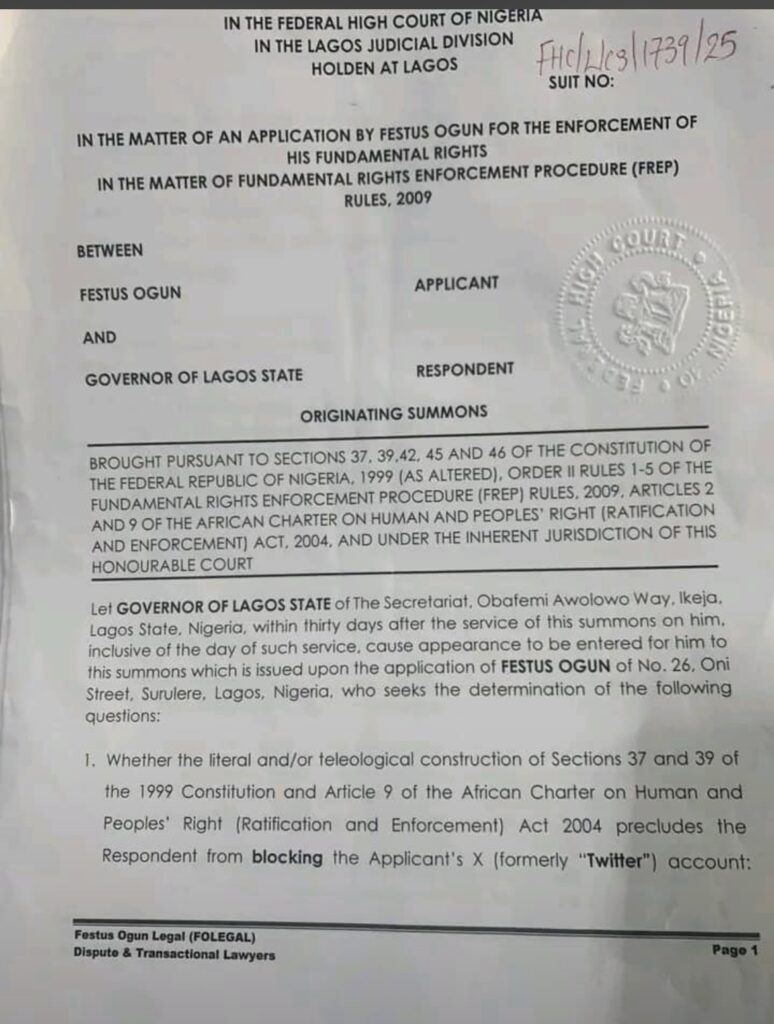
A Lagos-based lawyer, Festus Ogun, has dragged Governor Babajide Sanwo-Olu before a Nigerian court over claims that the governor violated his fundamental rights by blocking him on X (formerly Twitter).
Ogun, who announced the suit on his verified X handle, said the governor blocked him in 2021 on his official account, @jidesanwoolu, following his persistent criticism of government policies and demands for accountability over the 2020 EndSARS killings in Lagos.
According to him, the governor’s action has prevented him from accessing official updates and information on policies and governance in the state, which he described as a breach of his constitutional right to receive information.
“It is my case that blocking me on X has prevented me from accessing public updates and receiving information about policies and governance in Lagos, since the governor uses the account for official purposes,” Ogun stated. “By blocking me owing to my criticism of his administration and my demand for transparency, the Governor has violated my fundamental rights to freedom of expression and freedom from discrimination on the basis of political opinion.”
The lawyer said the situation has caused him “mental stress and trauma,” but clarified that he is not seeking financial damages. “I will not ask for damages so I won’t be seen as a gold digger. Just unblock me,” he said.
Ogun urged the Nigerian judiciary to draw inspiration from the landmark case of Knight First Amendment Institute v. Trump, in which a U.S. court ruled that former President Donald Trump violated citizens’ rights by blocking critics on Twitter.
He stressed that his suit was filed in the public interest to protect digital rights and ensure that intolerance to criticism has no place in Nigeria’s democracy.
“This suit is not just about me. It is about setting a precedent in our digital rights jurisprudence. The highhandedness of the Nigerian government towards critics, journalists, bloggers, and vocal citizens through arrests, detention, surveillance, collusion with big techs, and outright blocking must stop,” he added.
The case is expected to test the boundaries of digital rights, freedom of expression, and access to information in Nigeria’s constitutional democracy.
